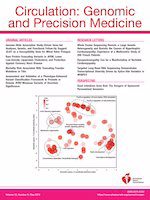
IMMUNOGENETICS
metrics 2024
Driving innovation in immunogenetic research.
Introduction
IMMUNOGENETICS is a prestigious international journal published by Springer, focusing on the intricate relationship between immunology and genetics. Established in 1974, this journal has dedicated itself to advancing our understanding of genetic factors influencing immune responses, thereby playing a critical role in the fields of immunology and genetics. With an impact factor that reflects significant academic influence and a current ranking within the second quartile of genetics and third quartile of immunology, IMMUNOGENETICS is recognized for its contribution to high-quality research and impactful findings. The journal is accessible through traditional subscription methods, catering to a global audience keen on exploring pioneering research. Researchers, professionals, and students alike will find invaluable insights and advancements in this interdisciplinary field, making IMMUNOGENETICS an essential resource for anyone engaged in the studies of immunogenetics.
Metrics 2024
 0.74
0.74 2.90
2.90 2.60
2.60 102
102Metrics History
Rank 2024
Scopus
IF (Web Of Science)
JCI (Web Of Science)
Quartile History
Similar Journals

EUROPEAN JOURNAL OF IMMUNOLOGY
Leading the Charge in Allergy and Immunology StudiesWelcome to the European Journal of Immunology, a premier peer-reviewed journal dedicated to advancing the field of immunology and allergy research. Established in 1971 and published by Wiley, this esteemed journal has been consistently ranked in the top quartile (Q1) across its categories, highlighting its significant impact within the scientific community. With an impressive Scopus ranking, the journal occupies the 64th position in Immunology and Allergy and the 74th in the broader sector of Immunology and Microbiology, demonstrating its vital role in driving innovation and knowledge in immunological studies. The European Journal of Immunology publishes high-quality original research, comprehensive reviews, and insightful commentary, making it an indispensable resource for researchers, healthcare professionals, and students dedicated to understanding the complexities of the immune system. Although not an open-access journal, it offers various subscription options to ensure that institutions and individuals can access pivotal research that shapes the future of immunology.

Immuno
Empowering Discoveries in Immunology, Biochemistry, and GeneticsWelcome to Immuno, a pioneering open-access journal published by MDPI that serves as a key platform for the dissemination of innovative research in the fields of immunology, biochemistry, and genetics. Established in 2021, this journal has rapidly established itself within the academic community, currently ranking in the 53rd percentile in Medicine (miscellaneous) and 50th percentile in Biochemistry, Genetics, and Molecular Biology according to Scopus metrics. With a commitment to advancing our understanding of immune mechanisms and their applications in health and disease, Immuno is dedicated to publishing high-quality peer-reviewed articles that contribute valuable insights to both researchers and practitioners. Positioned in the heart of Switzerland, its global accessibility and diverse editorial board are a testament to its aim to promote knowledge exchange among scientists, practitioners, and students alike. Explore the latest discoveries and advancements in immunological research through Immuno, where your contributions help shape the future of this critical area of study.

Circulation-Genomic and Precision Medicine
Leading the Charge in Cardiology and GeneticsCirculation-Genomic and Precision Medicine is a leading peer-reviewed journal published by Lippincott Williams & Wilkins, dedicated to advancing the fields of cardiology, cardiovascular medicine, and genetics. With an impressive impact factor and ranked in the Q1 quartile across multiple categories, including Cardiology and Genetics, this journal is pivotal for researchers and professionals seeking the latest insights and advancements in precision medicine. Established in 2018, it has rapidly gained recognition, evidenced by its commendable Scopus ranking and high percentiles among related fields. The journal emphasizes open access to enhance the dissemination of knowledge, making cutting-edge research readily available to a global audience. With the convergence of genomic science and cardiovascular health, Circulation-Genomic and Precision Medicine aims to foster interdisciplinary collaborations, offering a vital platform for innovative studies that impact patient care and clinical practices.

HUMAN IMMUNOLOGY
Exploring Innovations in Immunity and AllergyHUMAN IMMUNOLOGY, published by Elsevier Science Inc, serves as a critical platform for disseminating research in the fields of immunology and allergy, as well as various aspects of miscellaneous medicine since its inception in 1980. With an ISSN of 0198-8859 and E-ISSN 1879-1166, this journal is pivotal for researchers and practitioners looking to advance their understanding of human immune responses and related conditions. The journal currently holds a respectable position within its field, as highlighted by its 2023 Scopus ranks—#114/233 in Immunology and Allergy and #132/236 in Immunology and Microbiology. Moreover, it maintains a Q2 quartile ranking in both Immunology and Allergy and miscellaneous Medicine, underscoring its influence and reach within the scientific community. Although it does not currently offer Open Access options, HUMAN IMMUNOLOGY remains dedicated to providing valuable insights and fostering academic discourse within its discipline, characterized by a rigorous peer-review process and a focus on innovative research trajectories.

INFECTION GENETICS AND EVOLUTION
Transforming Understanding of Pathogen-Host InteractionsINFECTION GENETICS AND EVOLUTION is a premier scholarly journal published by Elsevier, focusing on the dynamic field of infection genetics and evolutionary biology. Since its inception in 2001, this journal has emerged as a critical platform for the dissemination of cutting-edge research, bridging the gap between molecular genetics, evolutionary theory, and infectious disease study. With an influence profound enough to secure its status in the Q1 category for Ecology, Evolution, Behavior and Systematics and impressive Q2 rankings in Genetics, Infectious Diseases, and Microbiology, the journal offers researchers unparalleled insights that advance the understanding of pathogen evolution and host interactions. Despite the lack of Open Access, the research published in this journal significantly contributes to the academic discourse and informs public health approaches. By publishing high-quality studies and reviews through 2024, INFECTION GENETICS AND EVOLUTION remains indispensable for academics, professionals, and students seeking to explore the intricate mechanisms of infection and adaptation in various organisms.

Genes and Nutrition
Bridging Genetics and Nutrition for Better HealthGenes and Nutrition is a prominent open access journal published by BMC in the United Kingdom, dedicated to advancing knowledge at the intersection of nutrition, genetics, and human health. With the aim of making cutting-edge research available to a global audience, the journal has been a vital platform for sharing discoveries since its inception in 2007, and it continues to thrive with a convergence period extending to 2024. Recognized for its high-quality contributions, Genes and Nutrition is rated in the Q2 category within both Endocrinology, Diabetes, and Metabolism and Genetics as of 2023, reflecting its esteemed position in these fields (Scopus Ranks leaderboard places it at #72/244 and #109/347, respectively). This journal is an invaluable resource for researchers, professionals, and students alike, fostering collaboration and innovation in the understanding of how genetic factors influence nutrition and health outcomes. Accessible to all since 2016, it encourages dialogue and discovery, positioning itself as a leader in genetic and nutritional science.

HUMAN GENETICS
Exploring the genetic blueprint of humanity.HUMAN GENETICS, published by SPRINGER, stands as a cornerstone journal in the field of genetics, offering a wealth of research insights since its inception in 1964. Hailing from Germany, this esteemed journal boasts an impressive Q1 ranking in both Genetics and Clinical Genetics, marking it among the top quartile of journals in these categories for 2023. With a notable Scopus rank of #7 in Clinical Genetics and a percentile ranking of 93, HUMAN GENETICS attracts significant attention from researchers and professionals dedicated to advancing our understanding of genetic influences on human health and disease. Although it does not currently offer Open Access options, the journal provides a critical platform for scholarly communication, aimed at disseminating groundbreaking findings in genetics and biotechnology. As the field evolves, HUMAN GENETICS continues to play an instrumental role in bridging the gap between laboratory research and clinical application, making it an essential resource for students and seasoned researchers alike.

HEREDITAS
Championing Open Science in Genetics and BeyondHEREDITAS, published by BMC, is a distinguished Open Access journal that has been a pivotal platform for the dissemination of cutting-edge research in the fields of genetics and biomedical sciences since its inception in 1920. With an impressive history spanning over a century, HEREDITAS has maintained a strong commitment to providing unrestricted access to high-quality scientific articles, ensuring that researchers and practitioners worldwide can share their findings and insights. This journal, which operates from its headquarters in the United Kingdom, is positioned within the Q3 quartile for Genetics and Q2 for miscellaneous Medicine categories according to the 2023 metrics, reflecting its significant yet evolving role in the academic landscape. Researchers are drawn to HEREDITAS not only for its legacy but also for its impact factor and contributions to the broader understanding of hereditary processes. The journal serves as an essential resource for students, scholars, and professionals who are keen on advancing the knowledge frontiers in genetics and related disciplines. With its open access policy implemented since 2005, HEREDITAS not only champions the principle of knowledge dissemination but also plays a crucial role in fostering collaborative research efforts across the globe.

MOLECULAR IMMUNOLOGY
Transforming Understanding of Immune MechanismsMOLECULAR IMMUNOLOGY, published by Pergamon-Elsevier Science Ltd in the United Kingdom, is a highly regarded journal in the fields of Immunology and Molecular Biology. With a focus on advancing the understanding of the immune system at the molecular level, the journal has been a critical resource since its inception in 1975. The journal is currently listed in the second quartile (Q2) of its category as per the 2023 rankings, indicating its substantial impact in both Immunology and Molecular Biology research. Researchers and professionals benefit from the journal's rigorous peer-review process and its commitment to publishing high-quality original research, reviews, and methodological studies that explore the intricate dynamics of immune responses. Although it does not currently offer an open access option, MOLECULAR IMMUNOLOGY remains an essential platform for scholars, emphasizing the significance of molecular interactions within the immune system and their implications in health and disease.

CRITICAL REVIEWS IN IMMUNOLOGY
Empowering Researchers with Comprehensive ReviewsCRITICAL REVIEWS IN IMMUNOLOGY, published by BEGELL HOUSE INC, is an essential journal in the field of immunology that has been contributing to the scientific discourse since 1980. With its ISSN 1040-8401 and E-ISSN 2162-6472, this journal provides a platform for critical analysis and comprehensive reviews that deepen understanding of immune responses and their implications in health and disease. Although currently categorized in the Q4 quartile for Immunology and Q3 for Immunology and Allergy, the journal's quality research and scholarly contributions are crucial for advancing knowledge within its fields—encompassing various aspects of innate and adaptive immunity. Researchers and professionals in immunology will find invaluable insights, aiding them in their quest for innovation and excellence, as the journal aims to foster interdisciplinary collaboration. While it does not operate on an open-access model, CRITICAL REVIEWS IN IMMUNOLOGY remains a significant resource for those dedicated to pushing the boundaries of immunology, with annual publications expected to last well into 2024 and beyond.